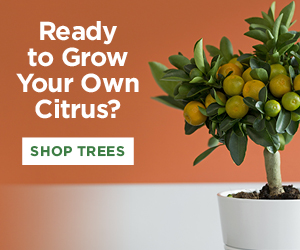
In recent years, scientists have discovered some amazing qualities in plants that make them wonder if plants have some level of intelligence. Of course, we aren’t talking about plants having feelings or thoughts like people or animals do, but still, they seem to be able to sense things about their surroundings.
Can you imagine that plants have some of the same basic instincts as animals, such as an innate sense of their surroundings and an ability to communicate with each other by sending and understanding signals?
No one is saying you need to start worrying about an Audrey-Esque plant à la Little Shop of Horrors coming to life yelling “Feed Me” at you, but plants are much more alive than we really think about.
There are scientists who study “plant intelligence,” which is a field called plant neurobiology. The “neuro” in neurobiology gives us a sense that while plants may not have brains, there is still something neurological going on there.
The Case of the Venus Flytrap
While you can’t really classify what the Venus Flytrap does as “neural activity,” it is hard to find the exact right way to classify it. You probably already know that a Venus Flytrap nourishes itself by trapping and digesting small insects like flies.
In an interesting turn of events, scientists say that the Venus Flytrap has an internal mechanism that can count. This is because it takes having its sensitive hairs touched exactly five times for it to snap shut. It is always five, every time, and this never changes. Somehow, the plant “knows” how to hunt and trap this way every time, but does this mean that a Venus Flytrap is intelligent?
What is Plant Intelligence?
Plant intelligence is a way to describe the behavior of plants that seems to show some level of intelligence. Some of these behaviors include:
- Sensing the environment around them.
- Making changes to adapt to new or changing conditions.
- Cooperation between plants.
Some plants have what can be likened to memory, or you could say that they learn. Nature can demonstrate this by a lima bean’s ability to start producing defensive chemicals when the sound of chewing caterpillars is introduced, whether or not the bug is even present.
Plants and Root Networking
In a study done on tomato plants, plants were paired off and separated with plastic so that only their roots would be able to share communication. Then, one plant in each pair was infected with a disease, and a day later, the second plant. In every case, the second plant fared better than the first because it gathered defense information from the roots of the first plant infected.
Mushrooms have a similar ability to transmit information through their connected mycelial systems. Certain bean plants can even warn each other about bug infestations, and fir trees have even been known to share nutrients like carbon, nitrogen, and phosphorus with each other to help keep each other healthy.
Do Plants Have Feelings?
Plants do not have emotions like humans do, and it is wrong to project our attributes on them, although it can be an easy trap to fall into. While plants do have an awareness of their surroundings on some level, they do not possess self-awareness.
While we should not get carried away with projecting, plant behavior is a little more than mechanical and is in some ways comparable to certain animal behaviors.
Root-Brains In Plants
Charles Darwin believed that plants might have had a structure or nervous center similar to the brain in their roots, which can be somewhat true.
This is because roots:
- Explore space.
- Feed the plant.
- Search for nutrients.
- Communicate with other plants.
- Shift directions to avoid roadblocks.
Do Plants Feel Pain?
We know that plants do not have emotional feelings as we do, but do they feel sensations, like pain, the way we do?
We can answer this question with certainty and say that plants do not feel pain in the way a person or animal would feel pain. Animals have pain receptors that allow them to feel pain, but plants do not have these.
Plants do not feel sensations, and what might seem like a plant feeling a sensation is just a plant reacting to a stimulus in its environment. This is part of the innate instinct and how plants develop that helps them to survive and reproduce.
Fascinating World of Plants
Plants are a wondrous part of the natural world. They provide a great opportunity to learn from and enjoy part of the world around us. Plants can provide us with visual beauty, but they also provide us with shelter, medicine, and food to nourish us.
Indoor plants can be part of a healthy lifestyle. They help relieve stress and clean the air in your home and office. You can even opt for plants that will produce herbs or fruit that you can include in a healthy diet.
Indoor Plants Delivered to Your Door
Did you know that you can have plants shipped to your door? It is simple to order wholesale houseplants for your home or office or even to give as gifts or to use as decorations at an event.
Having indoor plants delivered to your door is an easy way to fill your space with wildlife and bring nature indoors. So if you want amazing greenery in your home, check out what Soil and Clay has to offer and liven up your home!

